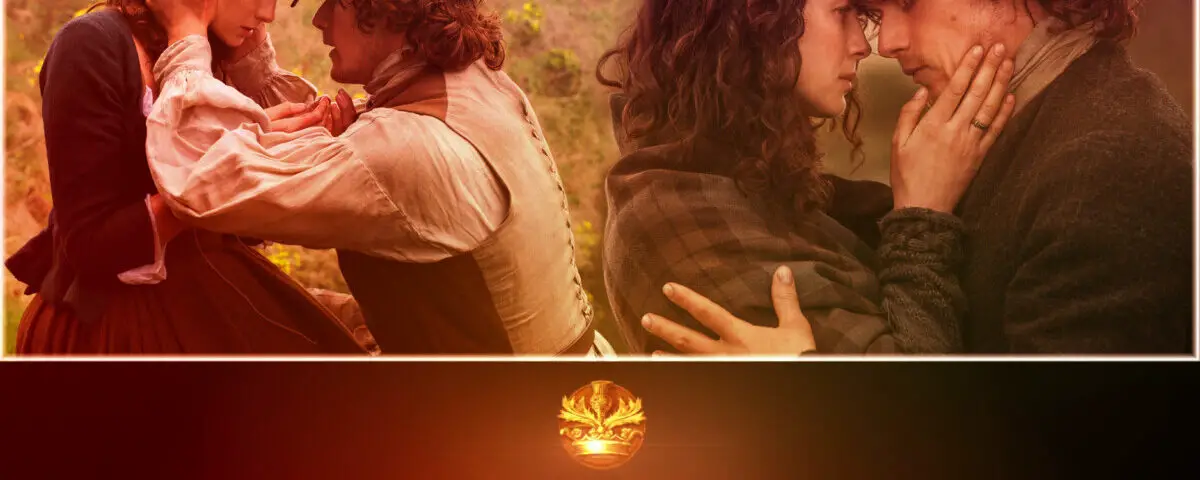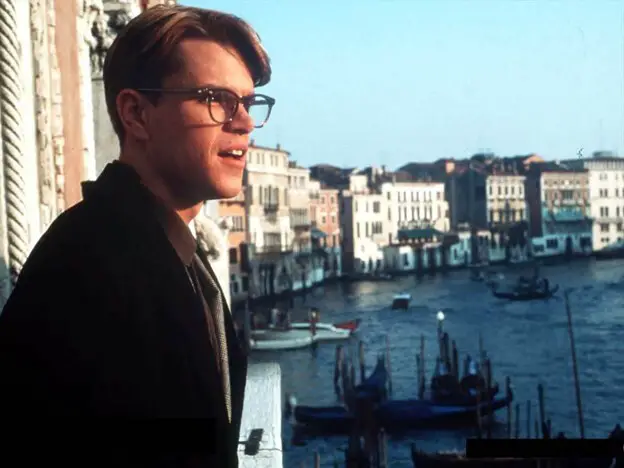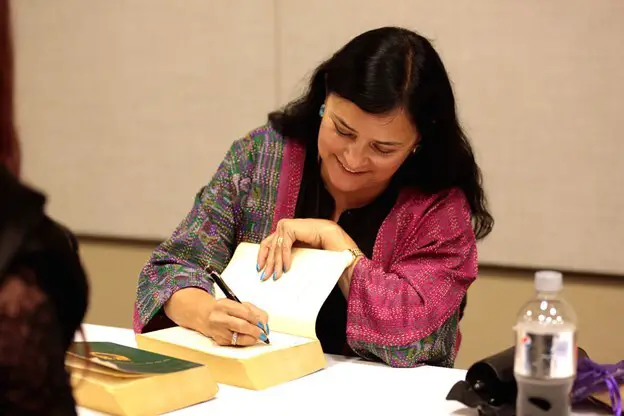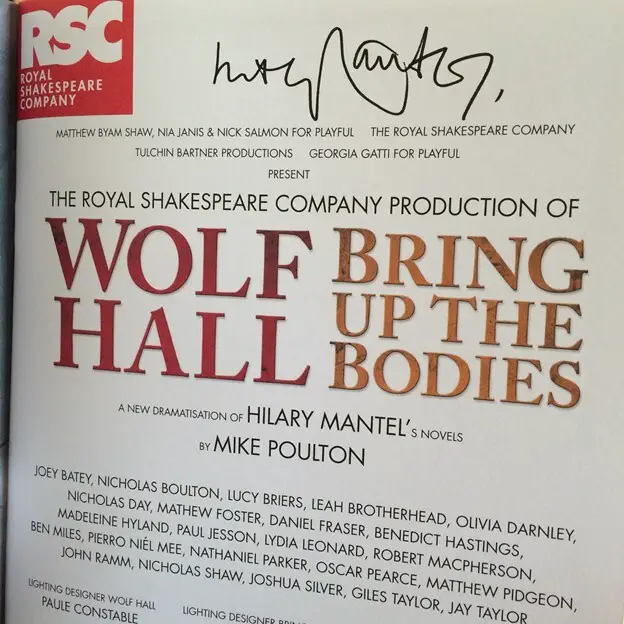|
Getting your Trinity Audio player ready...
|
Fiction series books have captivated readers for generations, weaving together complex plots and characters, keeping us coming back for more. From Hogwarts to Middle Earth, these timeless tales have cemented their place in literary history and our hearts. In this article, we delve into 5 of the best fiction series books that have left a lasting impact.
So, grab your reading glasses and settle in, as we journey through a world of fiction that is sure to leave you wanting to read these series.
5 of the best fiction series books in history are Patricia Highsmith’s Tom Ripley books and Diana Gabaldon’s Outlander series. Others include Hilary Mantel’s Thomas Cromwell trilogy, Armistead Maupin’s Tales of the City, and PG Wodehouse’s Jeeves and Wooster.
The Tom Ripley Series
Patricia Highsmith, a crime novelist famous for Strangers on a Train, also wrote a series about a dashing killer. Tom Ripley is handsome and conniving, a master manipulator and a liar, fast on his feet and skilled at impersonation.
What makes him so compelling, however, is how human he is. Most of the five books that feature him are told from his point of view. While it’s skewed through his warped sensibilities, it’s difficult to not be drawn in and to root for him. At times, he can be oddly empathetic and compassionate.
A Charming Maniac
In the first book, The Talented Mr Ripley, Tom insinuates himself into the life of a young wealthy playboy. Over the course of their time together, he falls in love with him until he ends up resenting him. His resentment for the man leads him to kill him and assume his identity. Eventually he makes off with his inheritance.
The next 4 books feature Tom desperately attempting to maintain his ill-gotten life of wealth and luxury. It’s witty, stylish, and highly suspenseful, and the books became very popular. Highsmith returned to Ripley throughout her career, the first in 1955 and the last as late as 1991. They are some of the best fiction series books ever published.
Legacy
The first three books in the series have been adapted for the screen many times.
- The Talented Mr Ripley was a French film in 1960 and an English film in 1999 starring Matt Damon.
- The second book, Ripley Under Ground, was a film in 2005.
- The third, Ripley’s Game, was a German film in 1977 and an Italian film in 2002.
A television series starring Andrew Scott is planned for Netflix.
In 1956, the Mystery Writers of America awarded Highsmith the Edgar Allan Poe Scroll for The Talented Mr Ripley. In 1957, she won the Grand Prix de Littérature Policière for Ripley in the international category.
Outlander
Diana Gabaldon’s popular Outlander series, comprising 9 books, is a unique mix of historical fiction, romance, and sci-fi/fantasy. It follows the story of a married nurse from World War II who time travels from 1945 back to 1743. While there, she meets and falls in love with a gorgeous Highland warrior called Jamie Frasier.
Part of the series’ fun is in watching Claire use her 20th century smarts and medical knowledge to succeed. There is also passionate romance, as well as the fascinating history of the Jacobite rebellion, around which the series revolves.
Inspiration
It is fascinating that when Gabaldon first conceived the series, it didn’t have a fantasy element. When she realised she wanted to write about a modern woman, she chose time travel to accomplish it. It was inspiration that turned Outlander into one of the best fiction series books in history.
Legacy
The Outlander books have sold a combined total of over 50 million copies. In addition to the main books, Gabaldon has written Outlander novellas and short stories, as well as a spin-off series. It’s also been adapted into graphic novels and even a musical.
It’s perhaps best known, however, for being the inspiration for the popular Outlander TV series on Starz. Now in its seventh season, each year of the show has adapted the next successive book. Starz has also commissioned a prequel series about Jamie’s parents called Blood of My Blood.
The Thomas Cromwell Trilogy
Hilary Mantel’s monumental trilogy is composed of Wolf Hall, Bring Up the Bodies, and The Mirror & the Light. This acclaimed and award-winning series is one of the best works of historical fiction ever written. Set in the Tudor Era, it tells the story of Henry VIII’s court from the tight viewpoint of Thomas Cromwell.
Thomas Cromwell was a lawyer who began working for Henry VIII’s chief advisor Cardinal Wolsey. Eventually, however, he rose to become one of the King’s favourites, holding many important positions. They included Lord Privy Seal, Chancellor of the Exchequer, and Master Secretary. He might be most famous, however, for the role he played in bringing down Anne Boleyn.
Legacy
History has treated him as a villain but one of Mantel’s key innovations was to make him a sympathetic figure. As John Mullan wrote in The Guardian, she reimagined his ambition and ruthlessness as an instinct for survival. In so doing, she created a multilayered protagonist with a piercing insight into the motives of powerful individuals.
Wolf Hall won many awards, including the Booker Prize, the National Book Critics Circle Award. Bring Up the Bodies also won the Booker Prize, as well as the Costa Book Award. The Royal Shakespeare Company adapted both books for the stage in 2013. The books were also turned into a television miniseries by the BBC, which won the BAFTA for Best Drama Series.
Tales of the City
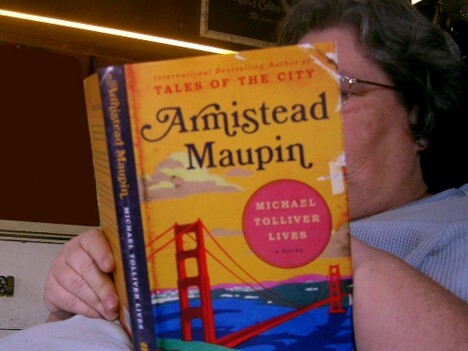
Armistead Maupin’s seminal Tales of the City series is made up of nine books (with characters appearing in two others). Set in San Francisco, it’s about the people who live in the house of the outlandish Mrs. Madrigal. The early books are set between the mid-1970s to late 1980s, with later books tracing the characters’ twilight years.
The series starts with a focus on Mary Ann Singleton, a naïve young woman from Cleveland. After moving to San Francisco, she discovers a liberal world she never imagined existed. She meets queer people of various types, including Michael Mouse Tolliver, a gay man who becomes her best friend.
Legacy
Tales of the City was, in many ways, ahead of its time. It includes everything from a focus on gay stories, the AIDS crisis, to featuring a prominent trans character. It began as a series of continuing stories Maupin wrote as columnist for The San Francisco Chronicle. So, there are a lot of autobiographical and factual elements woven in.
It received great acclaim for handling sensitive and important issues while being easy to read. The books have the pace and often over-the-top plot elements of a soap opera. At the same time, they have a great deal of heart, warmth, and often self-deprecating humour.
In 2019, BBC News listed Tales of the City as one of the most influential novels ever written. All the books are amongst the best fiction series books in history.
Adaptations
Tales of the City was adapted for television in an acclaimed miniseries in 1993. It starred Laura Linney and Olympia Dukakis. In 1998 and 2001 it received two more sequel series, adapting later books in the series.
In 2019, Netflix revived it for another miniseries. This one strayed much further from the source material but wove in certain elements from the later books.
It was also produced as a musical by Jake Shears, frontman of the pop disco band Scissor Sisters. Jake Heggie also wrote an opera piece based on the series called Anna Madrigal Remembers.
Jeeves & Wooster
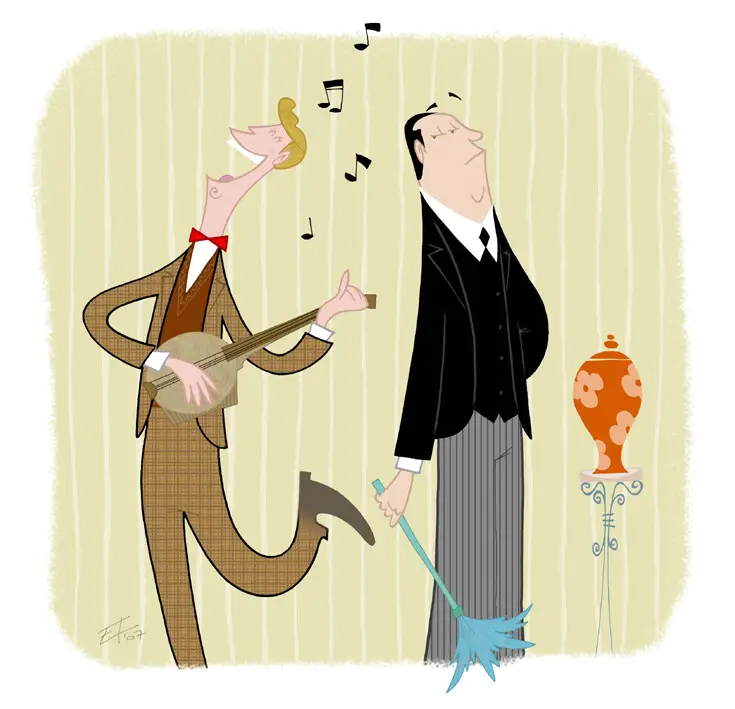
PG Wodehouse’s series about a hapless young man and his extremely competent butler is one of the funniest ever written. Bertie Wooster is a sweet, likeable, but moronic young man who is constantly getting into scrapes. Often these involves romantic entanglements with young women he doesn’t want to marry. Sometimes they involve trying not to displease his disapproving aunts.
In each of these instances, events spiral out of control in hilarious and ridiculous ways. And almost always, Bertie needs to enlist the help of his butler and confidante, Jeeves, to help him escape. Where Bertie is flighty and scared, Jeeves is calm, cool, and collected, never betraying a hint of alarm.
Legacy
Jeeves and Wooster appear together in 11 novels and 35 short stories, all of which were compiled into collections. Spanning over 60 years, between 1915 and 1974, they are one of the most iconic partnerships in literary history.
Adaptations
They have been adapted into film, radio, television, and theatre—even musical theatre. Andrew Lloyd Webber wrote a musical called Jeeves in 1975, which flopped. He revised it in 1996 and 2001 in successful productions under the name By Jeeves.
The most famous adaptation, however, was the television series starring Hugh Laurie and Stephen Fry. Running for 4 series on ITV, it’s considered to have captured the characters better than any other version.
Final Thoughts
And so, we come to the end of our journey through the top 5 best fiction series books in history. These book series have left an indelible mark on the literary landscape. They’ve captivated generations of readers with their imaginative worlds, unforgettable characters, and enthralling plots.
From epic adventures to heartwarming tales, these series books have something for everyone. They will continue to enchant readers for many years to come. So, why not embrace the magic and discover these timeless series for yourself?
These books are sure to be a source of inspiration, delight, and pure escapism. That’s whether you’re a lifelong fan or a newcomer to fiction series.
We hope this article has piqued your interest in these remarkable series books that will endure for generations to come.
FAQs
Q: What are fiction series books?
A: Fiction series books are books that are part of a larger narrative. They continue the story of the same characters and setting from one book to the next.
Q: Why are fiction series books important in history?
A: Fiction series books have been popular for centuries and have played a significant role in shaping the literary world. They have captivated readers with their intricate plots and complex characters, making them loved by readers who can relate to the characters.
Related Posts
Sources
In “The Talented Mr. Ripley,” a Shape-Shifting Protagonist Who’s Up to No Good – Edmund White – March 24, 2021
Reviews: The Talented Mr Ripley – Roger Ebert – December 24, 1999
Bloomsbury: Patricia Highsmith
The Talented Mr Ripley Movie Series: Ranked from Worst to Best – Padraig Cotter – Sept 2, 2022
Diana Gabaldon: The Outlander Series
Fictional Outlander Series Has Real Links to Scotland’s Newly Unearthed Neolithic Ruins – Ashleigh N. Deluca – Aug 10, 2014
How Hilary Mantel’s Wolf Hall trilogy turned Thomas Cromwell from villain to hero – John Mullan – 23 Sept 2022
A beginner’s guide to Hilary Mantel’s Wolf Hall trilogy – Amanda Rayner – Jan 23, 2020
‘Wolf Hall,’ ‘Transparent’ Win BAFTA TV Awards – Matt Busekroos – Nov 7, 2019
RSC: Wolf Hall & Bring Up the Bodies
Armistead Maupin: Bestselling Author & LGBT Activist
Penguin Books: Tales of the City
Working Title Films: Tales of the City
Plenty of Room for Stupidity: On PG Wodehouse – Brad Leithauser – March 26, 2014

